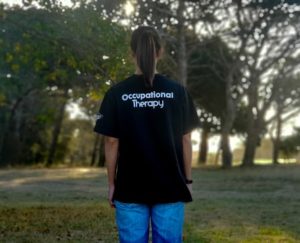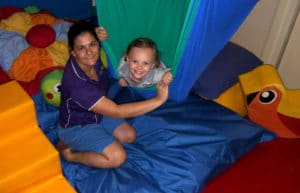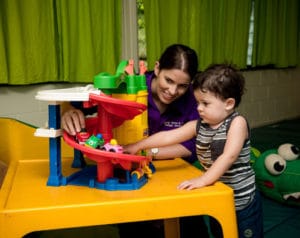People are often confused about the difference between Occupational Therapy and Physical Therapy. There are a few cross overs in both fields where they both provide rehabilitative work to help people perform everyday tasks, each field is quite different in its approach to help people get back to their normal way of life.
According to the National Board for Certification in Occupational Therapy, occupational therapy is unique in that it uses a holistic approach to look not only at the reasons a client’s participation in activities has been impacted, but also at the client’s roles and environment. The approach includes wellness promotion, rehabilitation, and habilitation.
So, how can occupational therapy in our Darwin therapy centres help you? We’ve listed a variety of common questions you might have to better help your queries.
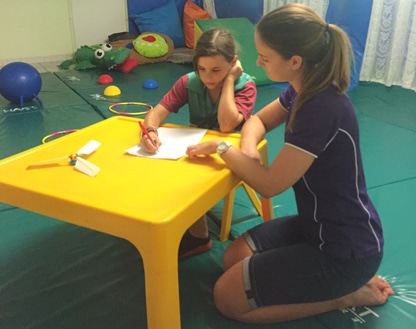
Who can benefit from occupational therapy?
At Stepping Stones In Life Therapy Service, we offer tailored solutions and therapy for children, teens and adults. With children, the services can include speech therapy, physiological evaluations, play therapy, group treatments and social skills treatments. We also work with special needs children who can benefit from treatments for sensory processing disorders and autism. In adolescents, we provide a wide range of specific counselling, therapy and social skills classes. In adults we focus on therapy and counselling for anxiety, depression and a host of areas where we can help your life be more manageable.
Our team is committed to providing the therapy service you need to live your best life.
When should my child see a psychologist?
There are any number of reasons a child may need the help of a psychologist. Many parents falsely assume their child won’t benefit from therapy if they have not experienced severe trauma, but that couldn’t be further from the truth. We can help children with behavioural problems, short-term stress, anxiety from bullying and other things that parents may assume are just part of childhood. We can also provide more intensive treatments for children who have developmental delays, autism, sensory disorders, or experiences with loss, abuse and other more severe circumstances.
What is a cognitive assessment?
A cognitive assessment involves giving a range of tests or questions that help us determine yourself or your child’s strengths and weaknesses in order to identify gaps in learning or abilities. This allows us to better determine which therapies would be most beneficial to your needs.
We are a team of trained professionals in many different disciplines. You’ll find that we have a number of therapists in many different areas, so you can have a treatment plan tailored to your needs no matter if you need physical, occupational or play therapy.
How long will I need therapy?
What is Express Arts Psychotherapy?
Expressive arts therapy is a multimodal approach to therapy similar to drama therapy and music therapy. Expressive arts therapy may incorporate writing, drama, dance, movement, painting, and/or music. Music therapy has a long history in rehabilitation and success in treating patient’s recovery. According to the American Music Therapy Association, music therapy has dated back to Ancient Greece and the writings of Aristotle and Plato. It was also used a successful therapy after World War 1, when musicians started playing at veterans’ hospitals for patients suffering from both physical injuries and emotional trauma.
What is Speech and Language therapy?
Speech refers to the actual sound of spoken language. Language refers to a whole system of words and symbols—written, spoken or expressed with gestures and body language—that is used to communicate meaning. Just as speech and language differ, there’s a difference between speech disorders and language disorders.
Here’s a list of therapies we provide for both children and adults.
For any other questions or if you would like to know about our other services, feel free to call us today.
Author
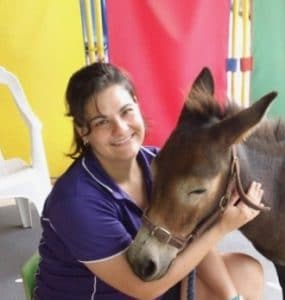
Barbara Kapser
Barbara Kapser is our psychologist at Stepping Stones in Life Therapy Service in Darwin. She's a member with the Australian Psychological Society and the Australian Association for Infant Mental Health.
She specialises in perinatal infant mental health, attachment disorders, developmental trauma and behaviour support.



